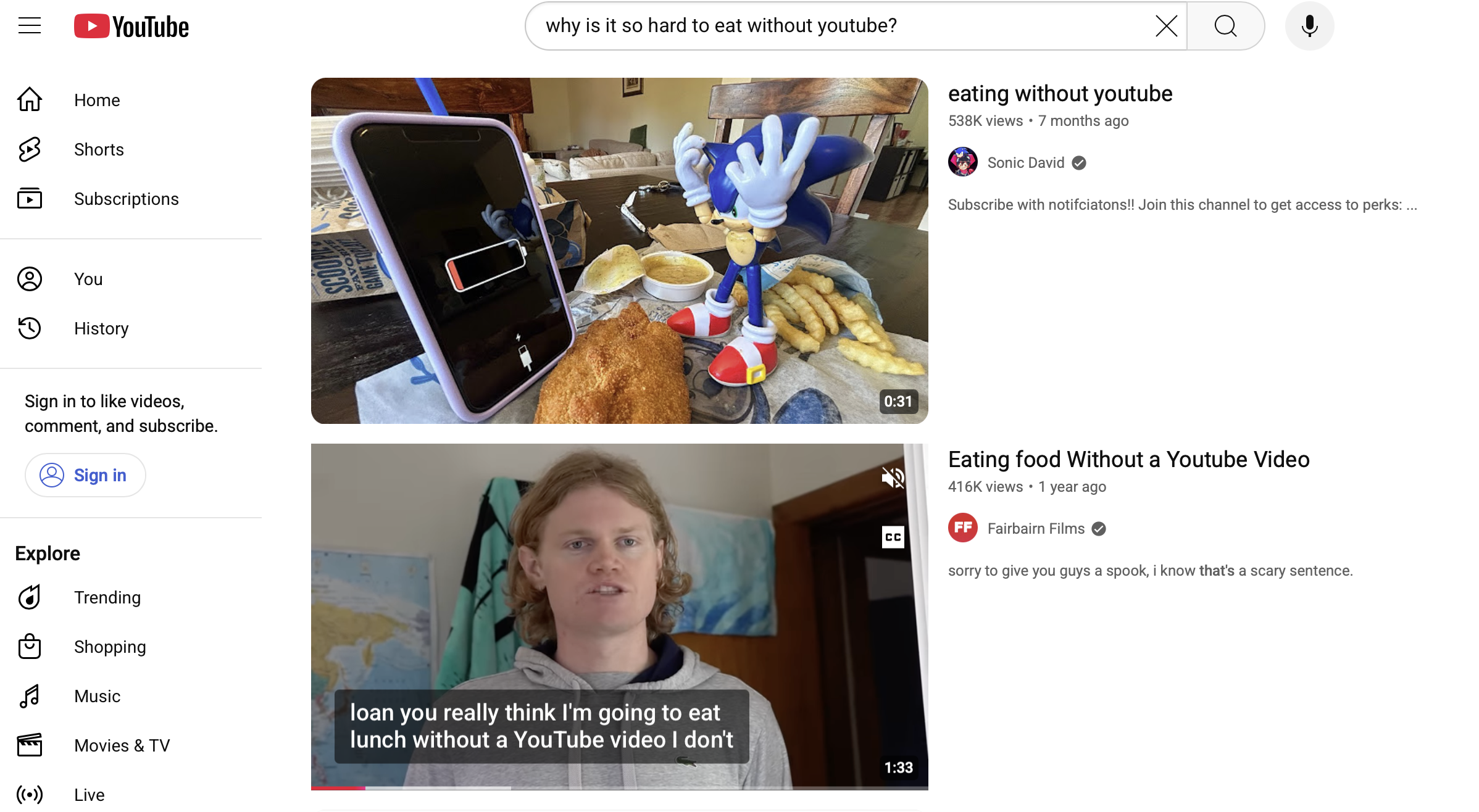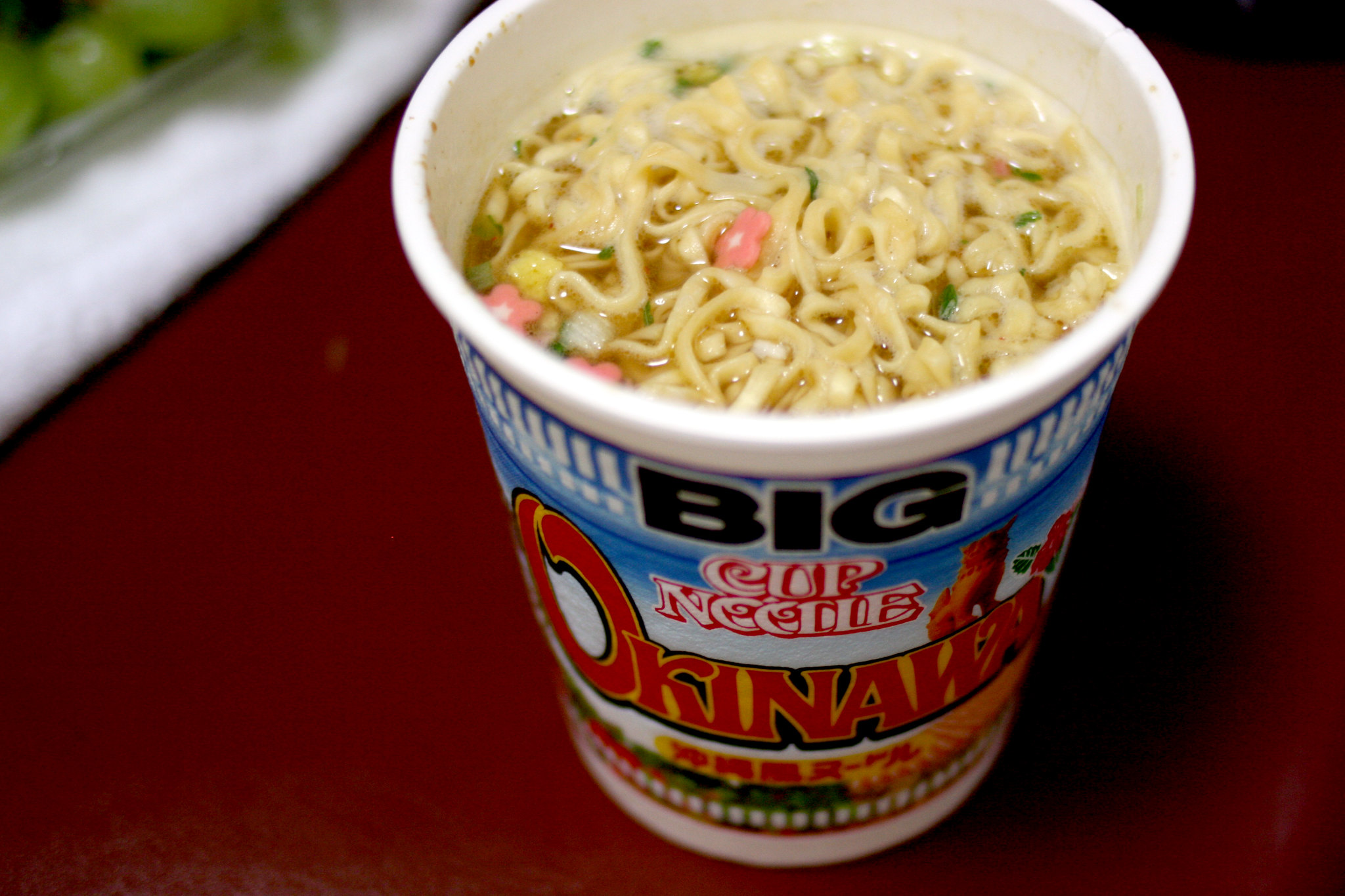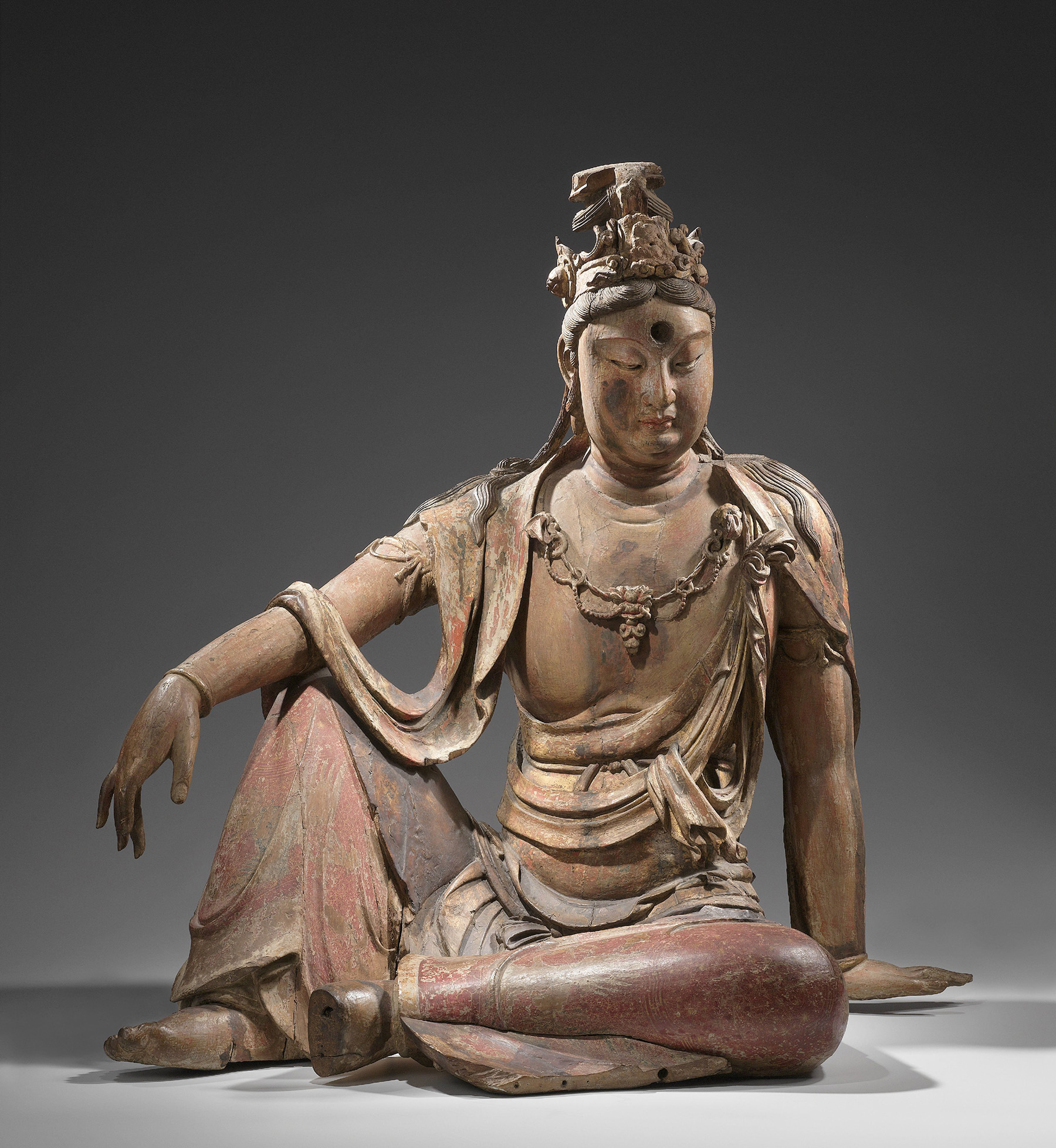
By Ella Hahs
Class was finally over. I hightailed it back home, the sound of my stomach grumbling overshadowing the Fleetwood Mac blaring through my car speakers. My feet pounded up the dusty steps of my apartment and my backpack flew from my grip onto the leather chair in the corner.
I assembled a meal fit only for the most exquisite palates: Cup Noodle and a mini can of Diet Coke. While I waited for the kettle to scream at me, I cracked open my laptop and the YouTube explore page stared back at me.
I scrolled through the options: “Surviving 50 Hours in the World’s Most Haunted Prison,” “Poorest Regions of America,” “HOW TO CAKE YOUR FACE LIKE A PRO (for the Grammys. stressed manic edition),” or “Try Not to Laugh: ‘Nice Guys’ 2.” Decisions, Decisions.
The kettle began hissing, so I was forced to retire my search and pour water into the styrofoam cup. I swirled the noodles around and clicked on the first video.
“Hey, welcome back, it’s Sam and Colby and we’re going to be staying in the world’s most haunted prison–”
I clicked off, scrolled, then chose a different video.
“Hi, it’s Tana Mongeau. Welcome to my channel, or welcome back to my channel–”
I clicked off again.
I played video tag, unable to begin eating until I found the perfect video to enjoy my sorry meal with.
Finally, I settled on a classic: Cody Ko reacting to the Button Dating Show. I smiled to myself as I swirled a noodle around my fork and Cody Ko made crude jokes through my laptop speakers. I took a bite. The noodles were cold.
“Why do you always watch YouTube when you eat?” My roommate, Elise, asked me from across the table.
“It’s about the experience,” I said, standing up to reheat my meal, “Dinner and a show–people have done this for centuries, Elise.”
She rolled her eyes at me, but her question did get me thinking. Why do I need to watch YouTube while I’m eating?
Curiosity piqued, I searched for an answer and found I wasn’t alone. There were even articles written about this phenomenon.
At InsideHook, Logan Mahon asked, “Why are we all addicted to watching YouTube while we eat?” He found there’s a whole subreddit dedicated to giving tailored YouTube video suggestions to pair with meals. Like a wine list, but instead of Cabernet Sauvignon with steak, you got “China's new export ban on tungsten shocks defense contractors as Pentagon races to find new supply,” paired with Totino's Party Pizza ($2 at Kroger).
Instead of feeding my addiction to YouTube while eating, I wanted to really understand why I have this compulsion.
So, the next day during lunch I made it a challenge to see if I could make it through a meal in silence. I listened to myself chew for a little while... then opened my laptop to YouTube.
I discovered quickly that this problem of needing YouTube to eat extended to other avenues of my daily life; there was rarely a moment in my day that I did not seek the stimulation of sound.

My need to eat with YouTube was really just a hatred of silence. So, I did what everyone does in 2025. I searched on Google, “Why can’t I be in silence,” and was met with around 453,000,000 results in 0.28 seconds.
The first was an article from Psychology Today, written by Rodney Luster, Ph.D. “Stop, Listen, and Be Silent.” To the surprise of no one, Luster explained how our society is drowning in noise. Our phones provide us with constant stimulation, even when the screens are locked.
How many times a day are we interrupted by a ping from indicating a text message, or a daunting Canvas notification?
Luster referred to an article written by Gita Martyes, “On Silence: A Language for Emotional Experience.”
“Silence is an important aspect of human interaction, but it is often experienced with discomfort and quickly filled with words,” Martyes wrote.
This seemed relatable enough. I read on: “Silence is a useful experiential medium in which to identify and work with emotions,” she wrote.
Did I have some unresolved emotional turmoil I was unaware of? Here I thought I just enjoyed a few staged ghost hunting videos along with my Cup-of-Noodle. Maybe this issue really was deeper. With a freshly brewed coffee in hand, I continued to try to uncover my hatred for silence.
Another article, “Silence and its effects on the autonomic nervous system: A systematic review” by Davide Donelli, separated silence into different categories. After digging through scientific jargon that I made peace with never understanding, I found the crux of the issue. Mindfulness. Donelli wrote about Inner Silences, or quieting the mind. By doing this, we could achieve a state of mindfulness and ultimately reduce our stress levels.
I was promised that mindfulness, when implemented into my daily routine, would not only lessen my impending stress, but also allow me to not need as much stimulation throughout my day. One day, I could even grow to love sitting in silence with myself.
I began seeing it everywhere, on social media — even on YouTube. My once-enjoyable routine of eating with YouTube had been ruined by the word "mindfulness." I couldn't stop thinking that my favorite mealtime activity was really just a bad habit.

The next day, I sat with Elise again. I turned to her, “So, you really just eat in silence?” I asked.
She nodded, “I drove all the home with no music once. For five hours,” she said, “Just me and my thoughts.”
After picking my jaw up off the floor, I watched her leave and then stared down at my buttered toast. My laptop winked at me from across the room.
For the entirety of the 30 seconds it took me to choke down the meal, I only stared longingly at my laptop.
It started slowly. A few times I would neglect to queue songs before leaving for class. Instead, I would drive for six minutes in silence. Then, during dinner, I sat with my roommates and talked (actually talked!) instead of immediately pulling my phone out.
In a week, I found myself eating lunch with only the air-conditioning as background noise. And what did I find?
I missed Cody Ko more than a desperate ex.
But, those scholars were clearly onto something — if the combined three Ph.D.s weren’t enough to prove it, the results of these small mindfulness practices did have almost immediate effects.
My productivity increased. Without YouTube, podcasts, or music filling my head constantly I found myself able to prioritize better.
Of course, all my problems weren’t magically solved, but it was significantly easier to get my coursework done without the constant temptation.
During dinner a few nights later, after finishing my homework for the week, I sat down at our secondhand dining table. The kettle was on and the house was silent.
I opened my laptop and clicked on the first video, “Overnight in the USA’s Most Haunted Forest: New Jersey DEVIL.”
This time, it didn’t feel like a relapse. It was a reward.